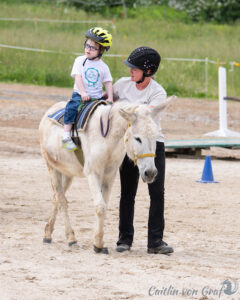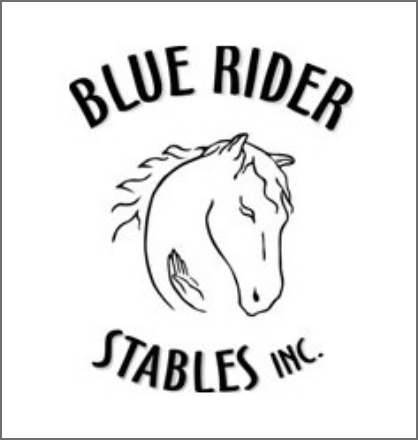Adaptive/Therapeutic riding at Blue Rider Stables doesn’t differ from our other lessons, in that we address diagnosed issues within the realm of a regular riding lesson plan. The individual remains the top priority, not the diagnosis. Instructors modify language and skills to suit the physical and cognitive abilities of the rider.
The physical movement of the horse mimics the movement of the human pelvis while walking, creating a harmony and balance throughout the rider’s torso. Bareback riding (using bareback pads rather than saddles) enhances this through the closeness of contact between the horse and the rider’s seat, and warmth helps the rider with relaxation and stretching. Riders learn focus through the need to communicate clearly to the horse. The horse is always nonjudgmental, which builds confidence and self-esteem in the rider.
The benefits of equine activities as documented are in these areas:
Muscular strength
Motor Development
Balance & Rhythm
Hand-Eye Coordination
Direction
Body Awareness
Time Perception
Social Skills
Comprehension
Problem Solving
Visual Perception
Emotional Awareness
These play out physically, sensorially, emotionally, cognitively, and socially.

Students going through our therapeutic programs come to us with a wide variety of physical, mental, social, cognitive, and emotional challenges and disabilities.
- Autism spectrum disorder
- Arthritis
- Muscular dystrophy
- Multiple sclerosis
- Cerebral palsy
- Depression
- Marfan syndrome
- Anxiety disorders
- Huntington’s disease
- Parkinson’s disease
- Stroke
- Spinal cord injuries
- PTSD
- Reactive association disorder
- Sensory processing disorder
- Visual impairments
- Deafness
- Brain Injury
- ADD/ADHD
- Age related physical issues
- Downs Syndrome
- Fine-motor coordination challenges
- Muscle/Tendon injury
- Back issues
- Balance issues
- Reactive association disorder
- Grief/loss
- Dyslexia
- Joint replacement
- Surgery recovery
- Selective mutism
- Alzheimer’s
- Ataxia
- FASD
- Intellectual/learning disabilities
- Trunk weakness

